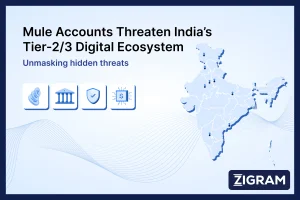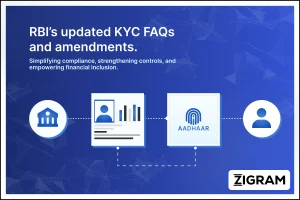On July 17, 2024 it was discovered that in a significant security breach, Indian cryptocurrency exchange WazirX has reportedly lost over $235 million to a sophisticated hacking attack. The incident, which has sent shockwaves through the crypto community, is being linked to North Korean hackers, specifically the notorious Lazarus Group. This hack is one of the largest in the history of cryptocurrency exchanges and has raised serious concerns about the security infrastructure of digital asset platforms.

The hackers exploited vulnerabilities in the exchange’s security protocols to siphon off approximately $235 million worth of various cryptocurrencies, including Bitcoin, Ethereum, and the native WazirX token (WRX). The breach led to a temporary halt in trading and withdrawals on the platform as the company initiated an emergency response to contain the damage and prevent further losses.
Where Is The Investigation Going?
WazirX has been collaborating with global cybersecurity firms and law enforcement agencies to track the stolen funds and identify the perpetrators. The exchange announced that it has implemented additional security measures, including biometric two-factor authentication (2FA) and other advanced security protocols, to protect user assets in the future.
Arkham, a blockchain intelligence firm, has offered a bounty for information leading to the recovery of the stolen assets and the capture of the hackers. Preliminary investigations indicate that the Lazarus Group, a hacking collective with ties to North Korea, is likely behind the attack. This group has been implicated in several high-profile cyber thefts targeting financial institutions and cryptocurrency exchanges globally.
How Will This Incident Impact The Crypto Market?
The hack has had a significant impact on the value of WRX, WazirX’s native token, which saw a sharp decline following the news. Additionally, the broader cryptocurrency market experienced heightened volatility as investors reacted to the breach. The incident underscores the risks associated with digital asset trading and the need for robust security measures.
Recent Security Breaches In The Crypto Space
1. WazirX
On July 18, 2024, the Indian crypto exchange WazirX suffered a significant hack resulting in a loss of $234.9 million, making it one of the largest breaches in 2024. Cyvers identified suspicious transactions where hackers converted cryptocurrencies like PEPE, GALA, and USDT into Ethereum. In response, WazirX halted withdrawals, reassured users about fund security, and began investigating the incident with law enforcement.
2. LIFI
On July 16, 2024, LIFI, a decentralized finance (DeFi) protocol, was exploited, leading to a $10 million loss due to vulnerabilities in their smart contracts. Hackers stole substantial amounts of stablecoins and ether, leading LIFI to advise users to revoke approvals and stop using the service. The vulnerability affected wallets with infinite approvals, impacting a few users. LIFI promised to refund all losses and is collaborating with law enforcement to recover the funds. This incident is similar to a hack LIFI experienced in March 2022.
3. Bittensor Blockchain
On July 03, 2024, Hackers exploited a flaw in Bittensor's blockchain, resulting in the theft of $8 million worth of TAO tokens. A suspected leak of private keys led to a 15% decline in the TAO token price. The decentralized AI project Bittensor paused blockchain operations after 32,000 TAO tokens were stolen, dropping the token's price from $281 to $234. On-chain analyst ZachXBT noted the network shut down about three hours after the last block was recorded on Bittensor’s Explorer.
4. Kraken
The popular crypto exchange Kraken experienced a security breach dated June 19, 2024, losing $3 million through compromised user accounts. A recent user interface update at Kraken allowed transactions to proceed before assets were fully cleared, leading to an exploit. Despite prompt investigation and mitigation, Kraken accused those involved of extortion rather than legitimate security research.
5. UwU Lend
UwU Lend faced two separate attacks on June 10, 2024 and June 13, 2024, losing $19.3 million and $3.5 million, highlighting significant security issues in their lending platform. On-chain data revealed that a single wallet exploited price manipulation using flash loans on June 10, stealing tokens like WETH, WBTC, and stablecoins, then trading them on Uniswap. A second attack on UwU Lend on June 13 compounded the losses, exposing security weaknesses. Blockchain security firms, including Arkham, confirmed the significant losses and highlighted the ongoing security challenges in decentralized finance.
6. Prism Finance
Prism Finance lost $10 million due to a sophisticated attack exploiting vulnerabilities in their platform on March 28, 2024. Cyvers detected a security breach at Prisma Finance, identifying around $9 million in losses and $1 million in fraudulent transactions. Prisma Finance halted operations for an investigation. This incident highlights the ongoing security risks in DeFi platforms, with over $200 million lost in crypto hacks in 2024, according to Immunefi.
7. BitForex
In an unusual twist, BitForex was implicated in a scam, resulting in $57 million in dubious transactions on February 23, 2024. Users were blocked from their accounts amid Hong Kong's efforts to tackle suspicious crypto entities. Despite regulations, BitForex, active since 2018 and registered in both Hong Kong and the Seychelles, wasn’t among the 14 flagged platforms by the Securities & Futures Commission. The company operates globally with teams in Germany, Estonia, Singapore, Malaysia, and the Philippines.
8. Abracadabra Finance
Abracadabra Finance was hacked on January 30, 2024, resulting in the theft of $6.5 million. A stablecoin’s market cap dropped from $100 million to $0.76 due to a vulnerability in its smart contract, which led to a precision loss. The project’s team quickly acted to stabilize the token's price. As of January 30, 2024, $29 million in assets remained in the affected contract, according to Blocksec.
9. CoinsPaid
CoinsPaid was targeted by hackers on January 06, 2024, leading to a $7.5 million theft. The breach involved unauthorized withdrawals of Tether, Ether, USD Coin, and CPD tokens. The hacker exchanged CPD tokens for Ethereum and moved the funds across exchanges. A prior hack, possibly by the Lazarus Group, used advanced social engineering. CoinsPaid hasn’t commented, and Cyvers has revealed the hacker's digital address.
10. Orbit Chain
On January 02, 2024, Orbit Chain suffered a major security breach, losing $80 million. The breach affected various cryptocurrencies, including stablecoins, wrapped Bitcoin, and Ether, transferred through mixers. It’s part of ongoing security issues for Ozys' projects, like KlaySwap and Belt Finance. This incident highlights persistent risks in crypto security, particularly with multisig wallets and private key management. There's no update on whether the victims will recover the stolen crypto.
Stay updated with latest fin-crime news! Connect with us on LinkedIn
The Importance And Necessity Of Compliance And Security
These incidents highlight the critical importance of stringent compliance and security measures in the cryptocurrency industry. Exchanges must adhere to international best practices and regulatory requirements to safeguard user assets. Regular security audits, implementation of advanced security protocols, and user education on safe trading practices are essential to prevent such breaches.
To ensure protection against fraud and hacking in cryptocurrency firms, it is essential to implement robust security measures at multiple levels. One of the primary steps is to employ advanced encryption techniques to protect sensitive data and transactions. This includes using end-to-end encryption, multi-signature wallets, and cold storage solutions to safeguard digital assets from unauthorized access. Additionally, firms should conduct regular security audits and vulnerability assessments to identify and mitigate potential threats. Utilizing blockchain technology’s inherent security features, such as immutability and transparency, can also help in tracking and preventing fraudulent activities.
Another critical aspect is fostering a culture of security awareness among employees and stakeholders. Regular training sessions on best practices for cybersecurity, such as recognizing phishing attempts and using strong, unique passwords, are vital. Implementing multi-factor authentication (MFA) for all access points and maintaining a strict access control policy can significantly reduce the risk of breaches. Furthermore, staying updated with the latest cybersecurity trends and threats, collaborating with cybersecurity experts, and participating in industry-wide initiatives can enhance the overall resilience of cryptocurrency firms against fraud and hacking.
ZIGRAM’s extensive screening tools and data assets make it easier for firms to comply with the latest laws around crypto and ensure security and safe trading. Connect with us for more details!
- #WazirX
- #Hacked
- #Crypto
- #RiskScreening






